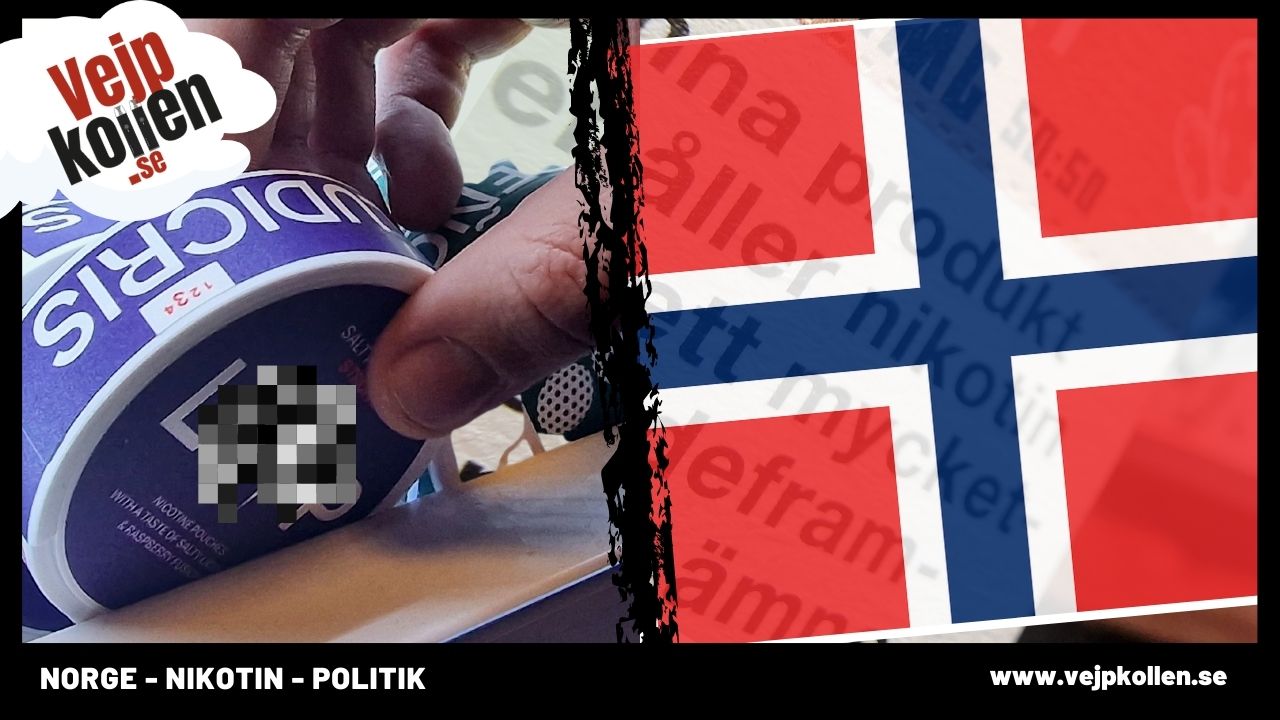A Norwegian researcher has been reported for research misconduct and misleading communication of results. This follows the publication of a study claiming that snus increases the risk of throat cancer.
'The risk of oesophageal cancer increases for people who use snus. But this only applies to one type of oesophageal cancer, where the risk is already very low. The risk of oesophageal cancer has not increased overall," says former senior researcher at the Norwegian Institute of Public Health, Erik Nord, who has now reported a researcher at his former workplace to the Norwegian Research Ethics Board.
Media headlines were dramatic in Norway after the Norwegian Institute of Public Health published a report on snus use and risks. Snus is widespread in Norway and has been identified in other reports as the most commonly used most common method for quitting smoking in the country. At the same time, researchers at the National Institute of Public Health disagree. current risks with snus. The conflict has now resulted in a complaint to the Research Ethics Committee.
"Still very low risk"
The research in question showed that the risk of oesophageal cancer increases from 0.016 per cent to 0.055 per cent for those who use snus compared to those who do not. The researcher behind the study, Bendik Brinchmann, then communicated the message that 'the risk of oesophageal cancer is tripled for snus users'. Naturally, this made the headlines. But according to senior researcher Erik Nordwho is now retired after 33 years at the Public Health Institute, the message is downright misleading.
- The fact that the risk of oesophageal cancer has more than tripled is a misleading headline. What we are really talking about is a very rare form of cancer. And when the risk is so very low, very few people need to worry. For example, if the risk is already as low as 0.2 per cent and it increases to 0.4, the overall risk is still very low. But the presentation of the research is, all in all, very scary,' says Erik Nord to the newspaper Nettavisen.
Shortcomings in old studies
According to Erik Nord, the study is also based on, in some cases, really old research results. These are studies conducted in Sweden in the 1970s and 80s. A lot has happened to snus as a product since then, he says.
'Moreover, this is a study with a number of methodological weaknesses that need to be taken into account when communicating the results. This has not been done. The data in the study concerns the use of snus in Sweden in the 1980s. Back then, snus was more dangerous than the snus that is commonly used in Norway now. Therefore, it cannot be assumed that the data actually says anything about the risks of snus use today. This must be stated in the communication", says Erik Nord.
He also believes that the Swedish studies did not take into account other factors in snus users that may increase the risk of various types of throat and pancreatic cancer. Alcohol is a known risk factor - but the studies did not take this into account,
Opposition from some researchers
Snus is a sensitive issue in Norway, as in Sweden. It is an addictive product manufactured and sold by tobacco companies, although the risk of harm from snus is considered to be very low. significantly lower than those caused by smoking. At the same time, it is a popular way to use nicotine in several Nordic countries. In Sweden and Norway, snus is more popular than smoking. According to the studies regularly published by the FHI, the increasing use of snus has simultaneously reduced the proportion of smokers in the country. This is also true among young people. where smoking is about to disappear completely, as snus use increases.
"But there have been people working at the Public Health Institute for many years who have been opposed to snus as a product," says Erik Nord. "They are hung up on the idea that tobacco is always harmful. They have therefore chosen to take a very one-sided view of the research results. This leads to exaggerations and biased conclusions."
More politics than research
At the same time, Erik Nord points out that most of the researchers at the government institute do what they are supposed to do, i.e. take an objective view of the facts. But since snus has also become an issue of legislation and politics, as much as health for individuals, it is easy to make mistakes when some researchers end up in the spotlight, he says.
'It becomes more politics than serious research. The actual communication in this case clearly appears to be a kind of activism. But it's disguised as authoritative research," says Erik Nord to Norwegian tv2.
Misleading messages
Erik Nord now wants the Norwegian Ethics Committee to take a closer look at the research and how the results were presented. He thinks that his old workplace, the Norwegian Institute of Public Health, should also get a slap in the face.
"There are individuals who make mistakes, but I think the management should consider whether they have built a good enough culture around research to avoid something like this happening. When this happens, the management is actually responsible for what then becomes advisory texts on the website. Things must not be written that are misleading, as in this case. They have failed to do so.
The criticism from Erik Nord has now been submitted to the Joint Ethics Committee, a body run jointly by several research institutes in Norway. Neither the accused researcher nor the investigator at the ethics committee has chosen to make a statement during the ongoing investigation.




